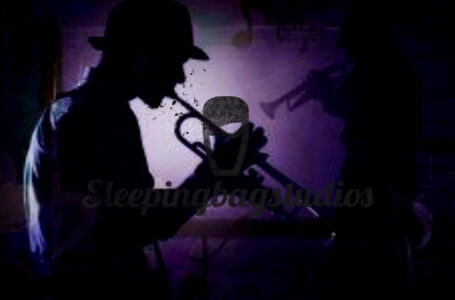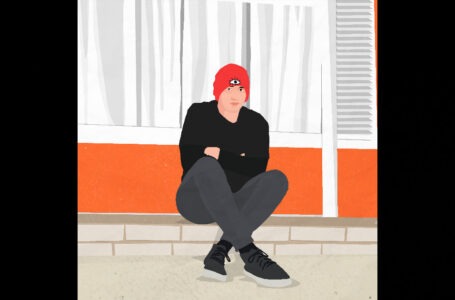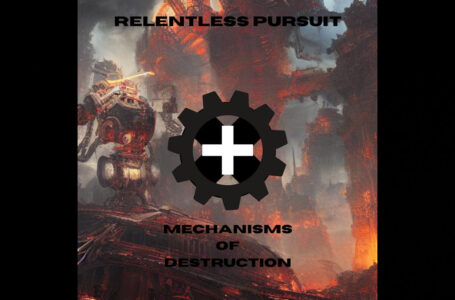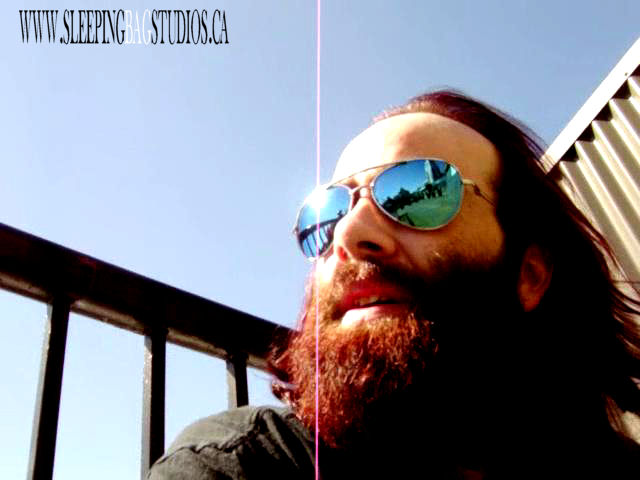Bruce Cohen
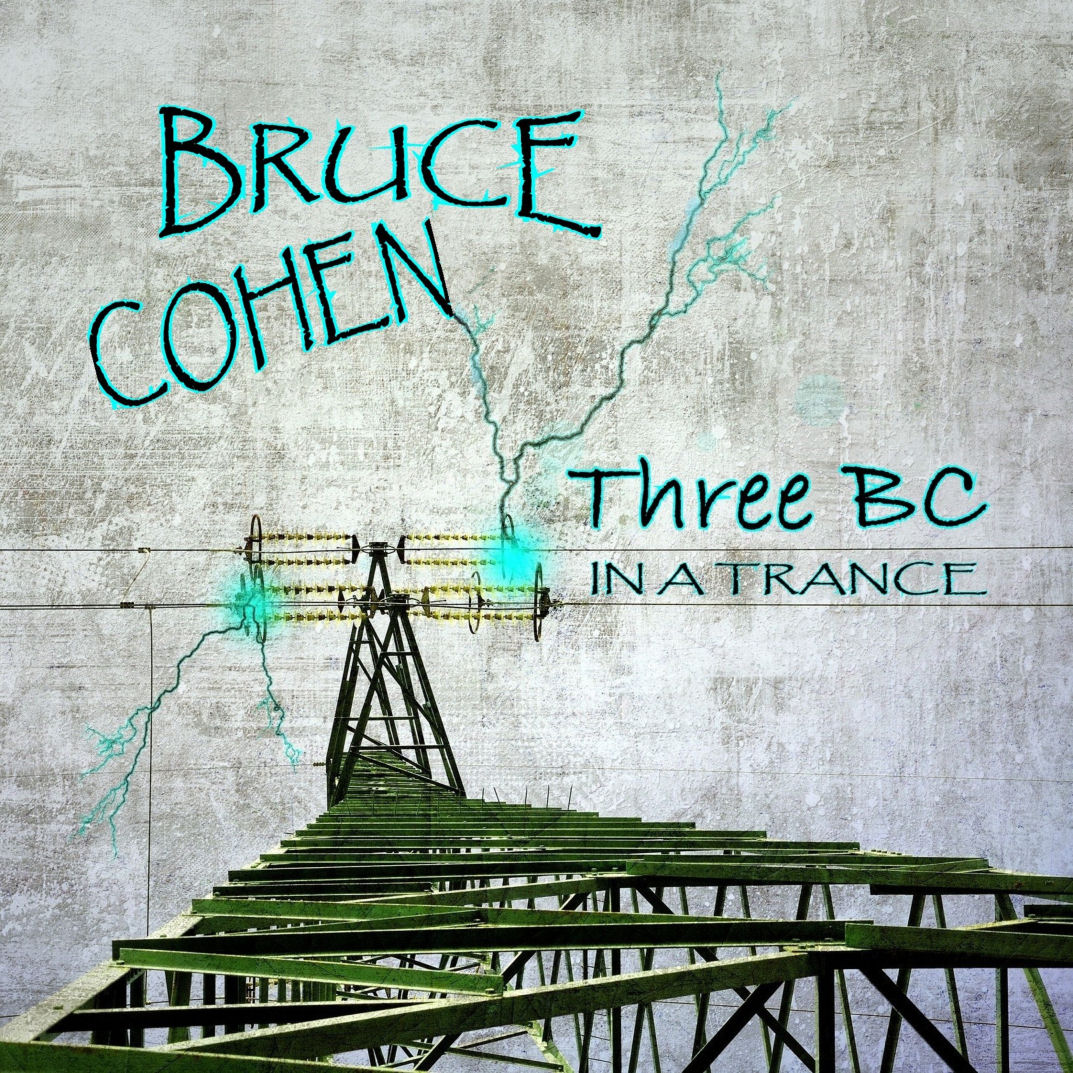
What a gentleman! What a truly, truly pleasant personality to talk music with! Hey everybody – meet Bruce! Hey Bruce – meet everyone else!
Stoked to be able to share this with you…seriously, this guy was extremely generous with his time and answers and has a TON of amazing insight/awesomeness to contribute to your brainwaves. I mean…for those that know their videos/movies…which many of you know that I do after a decade managing one of them old-fashioned ‘video-stores’…well…let’s just say I was blown away to find out our guest here has worked on some absolutely KILLER soundtracks and scores (pun intended, you’ll see) and really accomplished a lot to be proud of in his time spent immersed in music of all kinds. Notably…he’s also a member of The Reds, which our pal and yours – Rick Shaffer was a part of…so we knew we had good odds of running into another solid opinion and knowledgeable-source of all-things-music once we realized that connection was there. True to his character and musicianship – Bruce certainly went on to deliver the goods in this interview – it’s an absolute pleasure to welcome him to our pages!
Bruce Cohen Interview
SBS: Bruce! Thanks so much for taking some time to talk music with us my friend – your time is definitely appreciated and there’s a lot I want to ask you about. I’ll try not to ramble too much but that’s not exactly a strength I have, for the record. But let’s talk about YOU! It looks like exciting times are just ahead once again for you Bruce, you’ve just finished up recording the Three BC album – another solo effort outside of the other million-projects and records you also make that I’ve read about, but for those that aren’t familiar with you as a solo-artist yet, give us an idea of what these records…One BC, Two BC and Three BC are all about. What threads other than chronological order tie these together cohesively for you to put them out in a series-like anthology? It was my understanding that you took your solo-music in a different direction than music you’d previously made in bands like The Reds or Big Fun 3.
BC: First, thanks Jeremy so much for taking your time for this interview. I never really had any kind of anthology in mind when I started recording One BC. It just morphed into a series when it came to naming the projects. After recording the second album it was then I thought it would be cool to make it a continuing series of solo electronic music. The solo projects aren’t really that far removed from my work with The Reds and, to some extent, with Big Fun 3. If you soloed the keyboard tracks from The Reds albums you world hear where One, Two, and Three gestated. Big Fun 3 is more of me playing the Hammond and adding sounds here and there. But with The Reds it was all about supporting Rick Shaffer’s guitar and vocals with electronic/ ambient underscoring. One BC, Two BC and Three BC relate to each other as a continuing exploration of electronic music. For me, One was the experiment, then in Two I was more confident in what I was doing. But for me Three is the most focused because it explored the one main theme of EDM/Trance, and it was also the most fun to do.
SBS: In 2009 when One BC was recorded…at that point you had already had several years of musical-experience under your belt from the stage to the studio – so what was it that eventually made you feel the need to explore music solo-style and on your own? Did the music of Bruce Cohen the solo-artist allow you to express anything differently, or perhaps make music that you couldn’t have within the scope of your other projects/bands? What created the need to go solo…and more importantly…what gave you the courage and final push to go it alone?
BC: Well, Jeremy, it really didn’t take any courage at all. Just the desire to further explore what I was doing with The Reds and expanding it into a solo keyboard project. Obviously with The Reds and Big Fun 3 I work with other musicians. This was a chance to just work alone and see what I could do. I guess it was a little scary at first because it was all on me. With Rick it’s a partnership and everything is song oriented. With Big Fun 3 its total improvisation. So I took a little from both and blended it into one cohesive project. There was no need to go solo but a curiosity of what I could do.
SBS: I noticed in your bio write-up I read about you Bruce…that it notes on your solo-work you like to ‘experiment with German electronic minimalism’ – which is, quite honestly, not a phrase you run into quite often even in my line of work. It goes on to mention influences like Brian Eno, Peter Gabriel and Klaus Schulze…a list of which is actually 2/3 born-English! But I do understand what is meant overall…but I did also think I’d ask you about this…where that moment took place and what caused the overall-shift in your direction for music? There must have been a massively-defining moment in time that caused you to become curious enough to see if you could tackle this style yourself right?
BC: I guess you could look to Bran Eno as my main influence in attempting to record solo. Listen to Eno in the Roxy Music albums and then his solo stuff. Now listen to The Reds and then my solo stuff and you will see how I progressed into the electronic albums. There really wasn’t a revelation or big explosion in my head telling me to do a solo album. It sort of happened naturally, and just seemed like the thing to do. Plus it also gave the Tarock Music publishing catalog some extra weight by adding solo material by me and Rick in addition to The Reds songs.
SBS: I’m not even quite sure how to word this next question of mine…but I’m gonna try! With everything I’ve seen, read, researched and heard myself…you have done a TON with music and explored a whole host of genres, styles and sounds. I suppose what I’m wondering is…with it all being as widespread as it is…do you feel like these songs you make represent a piece of you – or is that still an entire representation of you no matter which genre we find you in? Essentially…is there music you could point to that you’ve made that is ‘100 %’ of Bruce Cohen, the man behind the music, through and through?
BC: Jeremy, in a word, everything.
SBS: What would you say the main differences are between One, Two and Three BC? Conversely, what bonds them together cohesively as a series?
BC: Well, like I said, One was getting my feet wet. Two was walking out about thirty feet, then swimming. Three was literally diving in head first. But all three could almost be a history of electronic music Bruce Cohen style. Actually, Three was going to be a continuation of Two, but after a suggestion from the record label to think about EDM/Trance, I liked the idea and agreed to do two tracks. But, I was having so much fun working on the two tracks that I went back to the label and said I wanted to do an entire album in the genre, which ended up being Three BC.
SBS: Musically…it seems as though you play quite a few instruments as well. I was wondering what we might hear being played throughout the new Three BC record in the instrumentation. And…because your focus here has shifted towards more of an EDM/Trance-like set of atmospheres…it’s kind of a bizarre question but, I was wondering if there is a favourite SOUND that came out on Three BC for you personally? Know what I mean? I wouldn’t ask you to pick a favourite song off of your own record…I’m sure you love them all or at least I’m hoping you do! But the genres listed are generally an audiophiles dream genres to listen to…all kinds of textures, atmospheres and sonic-elements to explore and include. So if any of this rambling DOES make any sense to ya…where did that favourite sound on the record come from instrument-wise, why is it your favourite, and where do we find it on the album?
BC: That’s easy, Jeremy, the very opening sound on Blue Stomp is it. I just loved that big noisy sound going in and out. Finding sounds is like searching for gold, sifting through hundreds of pre-sounds, and creating my own using hard or soft synths until I hear something and I say to myself, “Well, alright! That’s it!”
SBS: Overall…ambient music can be a tougher-sell to people, even though it occurs in just about every day in our lives whether we listen to it directly, watch something we love with the music in the background of the show, or even just walking through our daily routines. Ambient music is truly everywhere…and you’ve actually experienced success with that in the past on soundtrack work if I’ve read all this correctly. While that might be a little bit in the past for you…I have a feeling there’s some extremely relevant knowledge there for people that are looking to find a home for their music…so I’m bringing up the past Bruce! How did you get involved in soundtracks and scores…is the process a difficult one and/or something you’d recommend to musicians to pursue? Why or why-not?
BC: Soundtracks and scoring all started with The Reds. First, it was having songs licensed by Michael Mann for Miami Vice episodes, which led to recording songs for a movie Band of The Hand produced by Mann, and directed by Paul Michael Glaser. While we were in LA writing songs for the film, Mann liked what we were doing and asked if we would like to write the score too, which of course we did. When we finished Band Of The Hand Rick told Mann we’d like to write the score for the next movie he was directing, which at the time was called Red Dragon (later changed to Manhunter). Mann gave us the green light to score the film and it was one of my greatest experiences as a musician and a member of The Reds. It’s very hard to score, but also very rewarding. Especially for me and Rick because we’re such diehard film buffs. So for us what could be more fun than writing and recording music for film? Later on I wrote the score for a few theater productions in Philadelphia, which is a whole different approach to music.
SBS: What would you say that the key to communicating emotion is in instrumental music? Without words for people to grasp onto…many people don’t get that same connection with instrumental songs as they do with something they can sing along to – so what’s the key Bruce? How do you do it? What makes instrumental music strong enough to resonate and connect on an emotional-level with listening ears? When writing your own music…is that something you’re conscious of or that matters?
BC: Well, Jeremy, think of all the classical greats like Beethoven, Mozart, and Bach who created raw emotion through wordless music. Or Miles Davis, John Coltrane, and Thelonious Monk. Now I don’t pretend to be anything in that league, but when I am writing an instrumental piece it’s all about creating a mood. A certain sound can create a dark deep emotion or a happy one. And the way it’s played is a big part too. With The Reds it’s a lot easier because Rick sets the tone of the song through his lyrics and guitar, and I add the sounds to expand the tone of the song. With instrumentals it’s a little more difficult. With One and Two I would find that sound and build on it to create a mood or emotion. With Three the beat came first, then the sounds and moods would build as I added layer upon layer on each song.
SBS: Looking back on your music/career in retrospect Bruce…is there anything you’d do differently now if you were to do it all again? What would you try to change on a second go-around…and what would you hope would stay the same about the experience overall?
BC: I would do nothing different. My credo is No Regrets. Everything I’ve done as a professional musician since I was seventeen led me to where I am musically today.
SBS: I suppose the obvious, unasked question is – will there be a Four BC? People talk about three being that perfect number all the time…but perhaps this series will continue on? Maybe there’s a new avenue of music that you’ve somehow still unexplored or that you’d like to? What happens for Bruce Cohen after the release of Three BC and what comes next?
BC: Well the record label just released a Blue Stomp video on the heels of the album release. So, promoting Three BC is the task at the moment. Who knows what the future will be. It’s like improvising. You never know where it will take you. Maybe a new Big Fun 3 project. And as long as I am asked, there will be a Four BC. I definitely have more to say. We shall see, Jeremy.
SBS: Websites my man! We’re in promotions – that’s what we do here! J Where should the people find you online…like, where are you most active? Are you accessible to the fans out there that pop-into the social-media boards with questions and what-not?
BC: The best way to get the latest news is to subscribe to the Tarock Music Blog, follow on Twitter (https://twitter.com/TarockMusic), or like Tarock on Facebook (https://www.facebook.com/TarockMusic).
SBS: Time for me to hang-up the spurs and let you do the talking one last time here Bruce – welcome to the SBS ‘Open Floor’ – our way of saying thank-you for putting up with all my rambling and donating your time and answers to us all. Take a moment here to say anything else you’d like to, or comment on anything you would have liked to mention that I didn’t get into…the floor is yours my friend – thanks again and all the best to you Bruce!
BC: Once again, I want to thank you for your incisive interview, Jeremy. As you now know I can also ramble on. So I’ll leave you with a just few words from my music guru Miles Davis, “The music speaks for itself.”
Download a FREE mp3 of BLUE STOMP on SoundCloud ► https://soundcloud.com/tarockmusic/blue-stomp and find out more about Bruce Cohen through the Tarock Music official page at: http://www.TarockMusic.com
We’ve got questions, you’ve got answers – be our next interview guest at sleepingbagstudios by clicking here!


